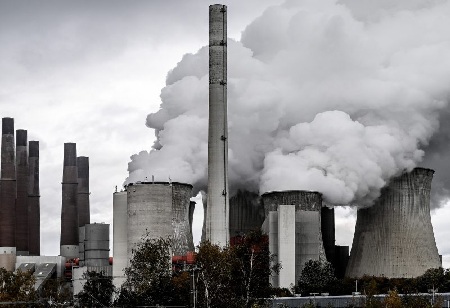India will need additional coal-based capacity of upto 28 GW by FY32 besides the 25GW already under construction, the draft national electricity plan said. However, the capacity addition is expected to be at the existing project sites as brownfield expansion, preferably closer to the mines.
The all India peak electricity demand and electrical energy requirement is 272 GW and 1,874 billion units (BU) for the year 2026-27 and 363 GW and 2,538 BU for the year 2031-32, respectively as per the preliminary estimates of Demand projections, the report showed. The projections are higher than 256-GW peak demand projected for 2027 and 320 GW for 2032 by the government three years ago. Increased base load capacity has gained importance to support the country's ambitious renewable energy target of 500 GW by
2030. Renewable energy generation is intermittent. The draft is also a stark reversal from a last year internal study by the Central Electricity Authority (CEA), the planning wing of the Union power ministry, that suggested new coal-based capacities are unlikely in this decade and energy storage is likely to be the new supporting load. "From scenario analysis, it is seen that apart from under construction coal based capacity of 25 GW, the additional coal based capacity required till 2031-32 may vary from 17GW to around 28 GW," the report said.
The draft comes amid UK's last week announcement to cap consumer power bills in a $115-billion package that also lists issuance of new oil and gas exploration licences in the North Sea, besides scrapping ban on fracking if locals agree. Most European countries, the US and China have increased their coal-based generation as Russia regulated gas supplies.
Union Cabinet last month approved India's updated Nationally Determined Contribution (NDC) commitments - net zero by 2070, 50% cumulative electric power installed capacity from non-fossil fuel-based energy resources by 2030 and reducing the emissions intensity of GDP by 45% by 2030 from the 2005 level. The absolute target of 500 GW has been removed from the commitments.
The draft CEA report rojected the share of non-fossil based capacity to rise to 57.5% by 2026-27 end and to 68.4% by 2031-32 end from around 40% as on March 2022. A capacity addition of 228,541 MW comprising of 40,632 MW Conventional (Coal-33262 MW, Nuclear-7,000MW, Gas-370MW) and 187,909 MW of Renewable is required during 2022-27 to meet the peak electricity demand and energy requirement for the year 2026-27.
